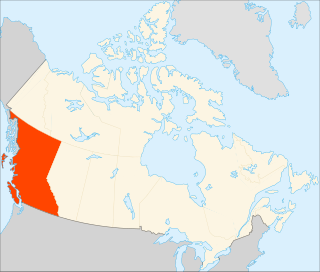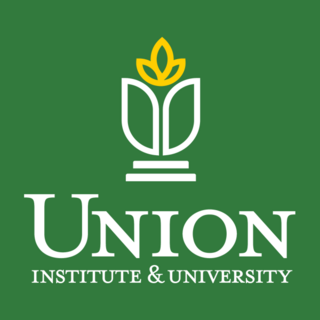
The Family Educational Rights and Privacy Act of 1974 is a United States federal law that governs the access to educational information and records by public entities such as potential employers, publicly funded educational institutions, and foreign governments. The act is also referred to as the Buckley Amendment, for one of its proponents, Senator James L. Buckley of New York.

Bucknell University is a private liberal-arts college in Lewisburg, Pennsylvania, United States. Founded in 1846 as the University at Lewisburg, it now consists of the College of Arts and Sciences, the Freeman College of Management, and the College of Engineering. It offers 65 majors and 70 minors in the sciences and humanities. Located just south of Lewisburg, the 445-acre (1.80 km2) campus rises above the West Branch of the Susquehanna River.

Hokkaido University, or Hokudai (北大), is a public research university in Sapporo, Hokkaido, Japan. Founded in 1918, it is the fifth-oldest government-authorised university in Japan and one of the former Imperial Universities.

Minnesota State University, Mankato is a public university in Mankato, Minnesota, United States. It is Minnesota's second-largest university and has over 145,000 living alumni worldwide. Founded in 1868, it is the second-oldest member of the Minnesota State Colleges and Universities system and is commonly referred to as the flagship institution. It was established as the Second State Normal School in 1858 and officially opened as Mankato Normal School a decade later. Minnesota State University, Mankato is a significant contributor to the local and state economies, adding $827 million annually.

A vocational school, trade school, or technical school is a type of educational institution, which, depending on the country, may refer to either secondary or post-secondary education designed to provide vocational education or technical skills required to complete the tasks of a particular and specific job. In the case of secondary education, these schools differ from academic high schools which usually prepare students who aim to pursue tertiary education, rather than enter directly into the workforce. With regard to post-secondary education, vocational schools are traditionally distinguished from four-year colleges by their focus on job-specific training to students who are typically bound for one of the skilled trades, rather than providing academic training for students pursuing careers in a professional discipline. While many schools have largely adhered to this convention, the purely vocational focus of other trade schools began to shift in the 1990s "toward a broader preparation that develops the academic" as well as the technical skills of their students.
Free education is education funded through government spending or charitable organizations rather than tuition funding. Many models of free higher education have been proposed. Primary school and other comprehensive or compulsory education is free in many countries. Tertiary education is also free in certain countries, including post-graduate studies in the Nordic countries. The Article 13 of International Covenant on Economic, Social and Cultural Rights ensures the right to free education at primary education and progressive introduction of it at secondary and higher education as the right to education.

Kaplan, Inc. is an international educational services company that provides educational and training services to colleges, universities, businesses and individuals around the world. Founded in 1938 by Stanley Kaplan, the company offers a variety of test preparation, certifications, and student support services. The company is headquartered in Fort Lauderdale, Florida, and was a wholly owned subsidiary of Graham Holdings Company from 1984 until 2018, when it was acquired by Purdue University Global.

Third-level education in the Republic of Ireland includes all education after second-level, encompassing higher education in universities and colleges and further education on Post Leaving Certificate (PLC) and other courses.
University admission or college admission is the process through which students enter tertiary education at universities and colleges. Systems vary widely from country to country, and sometimes from institution to institution.

Private universities and private colleges are higher education institutions not operated, owned, or institutionally funded by governments. However, they often receive tax breaks, public student loans, and government grants. Depending on the country, private universities may be subject to government regulations. Private universities may be contrasted with public universities and national universities which are either operated, owned and or institutionally funded by governments. Additionally, many private universities operate as nonprofit organizations.
Education in Lebanon is regulated by the Ministry of Education and Higher Education (MEHE). In Lebanon, the main three languages, English and/or French with Arabic are taught from early years in schools. English or French are the mandatory media of instruction for mathematics and sciences for all schools. Education is compulsory from age 3 to 14.

Tertiary education in Australia is formal education beyond high school in Australia, consisting of both government and private institutions and divided into two sectors; Higher Education and Vocational Education and Training (VET) provided by government-owned TAFEs & private Registered Training Organisations (RTO). Australian Qualifications Framework (AQF), the Australian national education policy, classifies tertiary qualification into 10 levels: level 1 to 4 vocational certificates ; level 5 & 6 undergraduate diploma and advanced diploma; level 6 associate degree; level 7 bachelor degree, level 8 bachelor honours degree & graduate certificates and graduate diplomas; level 9 for master's degree; and level 10 PhD. Most universities are government owned and mostly self-regulated. For other institutes there are two national regulators for tertiary education for registration, recognition and quality assurance of both the "provider institutes" as well as the "individual courses" provided by the providers. Tertiary Education Quality and Standards Agency (TEQSA) regulates institutes which provide education from level 5 or above. Australian Skills Quality Authority (ASQA) regulates institutes which provide education from level 1 to level 6.

The University of Management and Technology (UMT) is a private for-profit online university headquartered in Arlington, Virginia. It was founded in 1998 and offers associate, bachelor's, master's, and doctoral degrees as well as certificate programs.

Kabul Medical University formerly known as Kabul Medical Institute) is located in Kabul, Afghanistan on the campus of Kabul University. The medical institution was initially maintained by collaboration with the Turkish and French sponsors. KMF developed into a single autonomous University in 2005. KMU is a coeducational center with below 1000 enrolment. It currently graduates professionals in fields of Curative Medicine, Pediatric, Stomatology, Dental and Nursing. In 2012 two new departments of Medical Technology and Anesthesia were also added. All subjects are taught in Dari and Pashto but most medical terms are in English.

Higher education in British Columbia is delivered by 25 publicly funded institutions that are composed of eleven universities, eleven colleges, and three institutes. This is in addition to three private universities, five private colleges, and six theological colleges. There are also an extensive number of private career institutes and colleges. Over 297,000 students were enrolled in post-secondary institutions in British Columbia in the 2019-2020 academic year.
Spinghar Higher Education Institute was registered as a private higher education institute on May 20, 2009, in the city of Jalalabad, Nangarhar province, Afghanistan with ministry of higher education of Afghanistan. It offers 6-years M.D degree, the last year i.e 6 is a pregraduate internship which can be completed in Momand teaching hospital.

Hierarchical lists that rank universities are regularly published by the popular press. Intended originally as a marketing or a benchmarking tool, university rankings have become apart of many countries research evaluation and policy initiatives. These different tables attempt to fulfill a demand for information and transparency. However, rankings influence evaluation choices and distort higher education policies. List producers allow well remunerated vice-chancellors to claim a top spot for their university in an educational league. These ranking, the publishers claim, are determined by quantitative indicators. Published research suggests otherwise, rankings are re-shaping public education and harming the academic project. According to an Independent Expert Group (IEG), convened by the United Nations University International Institute for Global Health, Global university rankings are
Masinde Muliro University of Science and Technology or MMUST, formerly Western University College of Science and Technology, is a non-profit public university in Kenya. The university is named after Masinde Muliro, a Kenyan politician who helped found the institution. It has approximately 25,000 students across its branches: Main Campus and its two satellite campuses, Webuye Campus and Bungoma Campus

Union Institute & University (UI&U) was a private online university that was headquartered in Cincinnati, Ohio. It also operated satellite campuses in Florida and California.














